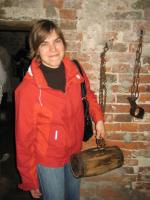Inproceedings,
Node Roles and Community Structure in Networks
Proceedings of the 9th WebKDD and 1st SNA-KDD 2007 Workshop on Web Mining and Social Network Analysis, page 26--35. New York, NY, USA, ACM, (2007)
DOI: 10.1145/1348549.1348553
Abstract
A node role is a subjective characterization of the part it plays in a network structure. Knowing the role of a node is important for many link mining applications. For example, in Web search, nodes that are deemed to be authorities on a given topic are often found to be most relevant to the user's queries. There are a number of metrics that can be used to assign roles to individual nodes in a network, including degree, closeness, and betweenness. None of these metrics, however, take into account the community structure that underlies the network. In this paper we define community-based roles that the nodes can assume (ambassadors, big fish, loners, and bridges) and show how existing link mining techniques can be improved by knowledge of such roles. A new community-based metric is introduced for estimating the number of communities linked to a node. Using this metric and a modification of degree, we show how to assign community-based roles to the nodes. We also illustrate the benefits of knowing the community-based node roles in the context of link-based classification and influence maximization.
Tags
- 2007
- 2010
- ambassador
- analysis
- bigfish
- bridge
- cliques
- community
- conferator
- detection
- graph
- loner
- network
- networks
- node
- role
- role-assignment
- roles
- seminar
- sna
- social
- structure






